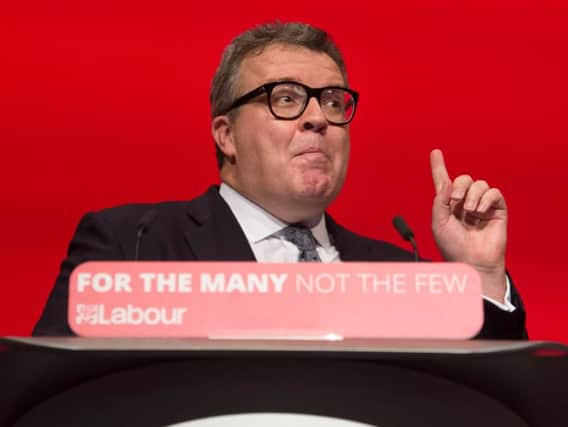Jayne Dowle: Why gambling is a last role of the dice for too many


However, telling us which vegetables to eat is a rather different matter from a serious condition blighting our communities, many of which are here in Yorkshire; gambling.
Watson, who is MP for West Bromwich East, is right to take a stance. His critics may accuse him of cherry-picking an issue which is sure to capture the headlines. However, if he is prepared to take this matter on, he will be proving that his party is brave enough to start tackling the very real problems which affect millions of people living miserable hand-to-mouth lives.
Advertisement
Hide AdAdvertisement
Hide AdFor too long now, politicians have taken a broad-brush approach. We need more voices to look beneath, then report back. Former Conservative Cabinet Minister Iain Duncan Smith, for instance, has been derided for instigating the Universal Credit benefit. We should not forget that his penetrating work into the causes of poverty began to open up some of the terrifying truths about how people are really living on neglected social housing estates and in squalid private rented accommodation.
More MPs need to follow his example, and that of Shadow Education Secretary Angela Rayner. She’s also been making an impression at conference, mostly because as a politician, she speaks from the heart on behalf of – her words – “my class, the people that I’m there to represent”.
Who are these people, who live in communities like mine and Ms Rayner’s? Too often, they are trying to work hard, but stagnant wages, zero-hours contracts and rising living costs are scuppering their attempts to create a comfortable life. No wonder the Bank of England is warning about runaway consumer debt. People simply cannot live on the money they have.
A new report by the think tank Social Market Foundation, in conjunction with ISA provider Scottish Friendly, finds that almost half (30 per cent), of households in Yorkshire say they are worse off than 12 months ago.
Advertisement
Hide AdAdvertisement
Hide AdThe median household in Yorkshire has £1,164 left each month after paying for home essentials such as rent, mortgage, food and energy bills. From where I’m standing, I would say that is a very median figure indeed; many families have to find clothing and furniture from much less. I saw a full-time job in a senior support role in a local college advertised the other day, for an annual salary of around £14,000. You do the maths.
I’m not saying that every instance of gambling addiction is caused by inadequate pay and spiralling living costs. I would say, however, that a large percentage of cases will have at their heart lack of hope. I only have to walk around my own town centre of Barnsley and count the growing number of bookies and their anxious customers to see that.
And of course the industry will service this hope. Research by the Gambling Association shows the number of problem gamblers in this country has risen by a third in just three years. Two million people are now either problem gamblers or at risk of addiction.
Two million? It’s just a big number, isn’t it? And gambling is full of big numbers. That’s part of the attraction. Look closely however. What should really concern us is the fact that there are now a third more “problem gamblers” in the UK than there were in 2014.
Advertisement
Hide AdAdvertisement
Hide AdIt’s the speed at which addiction is taking hold that should worry us most. And remember, these figures only represent those who admit that they have a problem with the bookies or the scratch-cards or the online poker. What about others too ashamed to say that every penny they scrape together is regularly being thrown on the dice in the last-chance saloon?
Gambling addiction, as Watson rightly points out, is an illness. And, as he has outlined in his party speech, the companies which peddle this perilous road to so-called riches should be brought to heel and asked to contribute towards treatment to help those who need it.
I wish him luck with that. If we look at gambling addiction as an aspect of mental health, we don’t have to look far to realise that demand already massively outstrips supply of hospital beds, counselling, therapy and follow-on care across all services.
Asking the gambling industry to cough up is only the first step. All too often, gambling addiction is just part of the problem. And you can’t treat any form of addiction without addressing the underlying conditions which cause it to take hold in the first place.
Advertisement
Hide AdAdvertisement
Hide AdUntil more politicians begin to tackle the root causes of poverty and despair, persuading big business to fund treatment for any kind of addict, gambling or otherwise, is like putting a sticking plaster on a gaping wound.
Gambling addiction is an illness. Asking the industry to cough up is only the first step.
Read more: